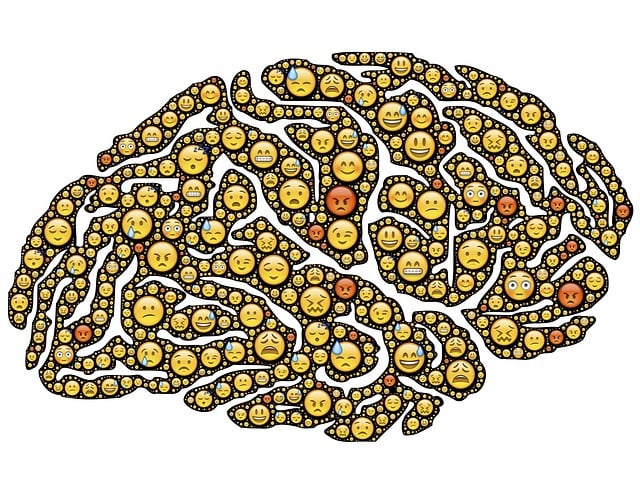Substance abuse is a multifaceted health issue addressed by Parker Drug Abuse-Substance Abuse Therapy through holistic approaches. They recognize biological, psychological, social, and environmental factors contributing to risk, focusing on depression prevention, self-care, and cultural competency training. Early warning signs like behavioral changes and academic decline are crucial for intervention. Evidence-based therapy, including CBT and MI, alongside supportive services and community engagement, empowers individuals to manage risks and develop healthy coping mechanisms. Relapse prevention planning, self-care, and mindfulness are essential components of long-term recovery tailored to individual needs through culturally sensitive care.
In a world where substance abuse poses significant risks, understanding and implementing effective risk reduction strategies are paramount. This comprehensive guide delves into the multifaceted approach to addressing substance abuse, focusing on both individual and community levels. From recognizing early warning signs and identifying risk factors to exploring evidence-based therapy approaches like Parker Drug Abuse-Substance Abuse Therapy, supportive services, and relapse prevention planning, this article equips readers with knowledge to combat this pressing issue.
- Understanding Substance Abuse and Its Risks
- Identifying Risk Factors and Early Warning Signs
- Evidence-Based Therapy Approaches for Drug Addiction
- Supportive Services and Community Engagement
- Relapse Prevention Planning and Long-Term Maintenance
Understanding Substance Abuse and Its Risks

Substance abuse refers to the harmful use of drugs or alcohol, leading to a range of adverse effects on an individual’s health, relationships, and overall well-being. It is a complex issue that requires understanding and addressing from various angles. Many factors contribute to substance abuse, including biological, psychological, social, and environmental influences. For instance, individuals with underlying mental health conditions, such as depression or anxiety, may turn to substances as a coping mechanism, thus exacerbating their existing issues.
Recognizing the risks associated with substance abuse is paramount in developing effective prevention strategies. Long-term effects can include physical dependencies, severe mental health disorders, and social problems. The risk extends beyond the individual to impact families, communities, and society at large. Parker Drug Abuse-Substance Abuse Therapy emphasizes a holistic approach, considering not just treatment but also supporting individuals in adopting self-care practices and enhancing their cultural competency through training, especially with regard to depression prevention. This multifaceted strategy ensures better management and reduced risks associated with substance abuse.
Identifying Risk Factors and Early Warning Signs

Identifying risk factors and early warning signs is a critical step in mitigating substance abuse within communities. Mental health professionals play a pivotal role in recognizing individuals at elevated risk, which can include a family history of substance abuse, past trauma, or co-occurring mental health disorders. By integrating Risk Management Planning for Mental Health Professionals, therapists can proactively address these risks and provide timely interventions.
Early warning signs may manifest as significant changes in behavior, such as withdrawal from social activities or a sudden decline in academic performance. Emotional Well-being Promotion Techniques focused on enhancing inner strength development can empower individuals to resist substance abuse. Through open dialogue and evidence-based strategies, professionals can guide clients towards healthier coping mechanisms, fostering resilience and improving overall mental health.
Evidence-Based Therapy Approaches for Drug Addiction

Evidence-based therapy approaches play a pivotal role in effectively treating drug addiction. One such approach is cognitive-behavioral therapy (CBT), which focuses on identifying and changing negative thought patterns and behaviors associated with substance abuse. CBT equips individuals with coping strategies to manage cravings and triggers, fostering a sense of control over their lives. Another powerful method is motivational interviewing (MI), designed to enhance motivation for behavior change by exploring ambivalence and strengthening commitment to treatment goals.
In the context of Parker Drug Abuse-Substance Abuse Therapy, integrating communication strategies and cultural sensitivity further enhances these evidence-based practices. Skilled therapists facilitate open dialogue, encouraging clients to express their feelings and experiences honestly. By incorporating cultural considerations, healthcare providers ensure that therapeutic interventions are tailored to individual backgrounds, promoting greater engagement and positive outcomes. This holistic approach not only addresses the addiction itself but also considers underlying conditions like Depression Prevention, which often co-occur with substance abuse.
Supportive Services and Community Engagement

Supportive services and community engagement play a pivotal role in mitigating substance abuse. Beyond individual therapy, Parker Drug Abuse-Substance Abuse Therapy emphasizes a holistic approach, incorporating various supportive measures to foster recovery and prevent relapse. These include access to counseling sessions, support groups, and mental health education programs designed to equip individuals with the knowledge and skills for self-care practices. By fostering a sense of belonging within the community, these initiatives enhance social connections, promote positive coping mechanisms, and provide a safety net during challenging times.
Community engagement strategies leverage Mind Over Matter principles to empower individuals to take control of their mental health. Through workshops, awareness campaigns, and peer support networks, community members learn to recognize triggers, develop resilience, and adopt healthier lifestyle choices. This collective effort not only reduces the prevalence of substance abuse but also cultivates a supportive environment where everyone is encouraged to prioritize self-care and well-being.
Relapse Prevention Planning and Long-Term Maintenance

Relapse Prevention Planning is a crucial component of long-term recovery for individuals struggling with substance abuse, as it equips them with strategies to navigate triggers and maintain sobriety. This process involves identifying high-risk situations and developing personalized coping mechanisms. For instance, a person in recovery might plan how to handle social gatherings where drugs or alcohol are present, ensuring they have a supportive network in place and alternative activities to engage in. Parker Drug Abuse-Substance Abuse Therapy often incorporates these plans, fostering a sense of control and preparedness.
Long-term maintenance requires ongoing commitment and self-care. It encourages individuals to cultivate inner strength through practices like mindfulness, therapy, and support groups. Additionally, learning conflict resolution techniques can help manage stress and avoid triggers associated with past conflicts or emotional turmoil. Cultural sensitivity in mental healthcare practice is also essential, ensuring that recovery journeys are tailored to an individual’s unique cultural background and needs.
Substance abuse is a complex issue, but with comprehensive risk reduction strategies, individuals can overcome addiction and lead healthier lives. By understanding the risks, identifying early warning signs, and accessing evidence-based therapy like those offered by Parker Drug Abuse-Substance Abuse Therapy, people can navigate their recovery journey effectively. Supportive services and community engagement play a vital role in fostering long-term maintenance, ensuring that individuals stay on track and thrive in their new, substance-free lives.











